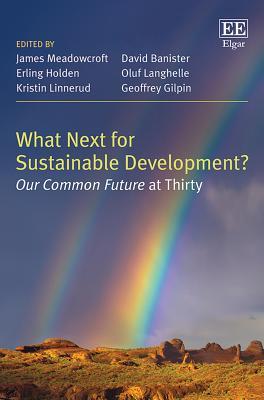
Since the Anthropocene concept was introduced at the turn of the millennium, we have seen the return of a dystopian environmental discourse of ecological tipping points, complexity and urgency. In contrast to the hopeful story of sustainable development inherited from the Brundtland Commission and the past 30 years of liberal environmentalism, the Anthropocene is wedded to a language of fear and sorrow in view of irreparable loss of Arctic ice sheets, endangered species, seasonal variations and traditional ways of living. Eva Lövbrand writes in chapter 14 of What Next for Sustainable Development? Our Common Future at Thirty by Meadowcroft, J. et al. (eds).
The chapter traces how the Anthropocene debate is taking form in academic circles and challenging the conceptual frame that has guided climate policy-making during the past three decades. Rather than promising more prosperous, more just, and more secure futures for all, the Anthropocene places us at an uncomfortable juncture where irreversible loss and damage has already occurred. Where this darker vision of people and planet will lead us is too early to tell. Contemporary Anthropocene debates contain a broad mix of dystopian scenarios, social critique, novel ethical claims and challenging ontological propositions. While many of these ideas may never travel beyond the academic seminar room, they demonstrate a search for green hope and radical political energy in a time when nature no longer offers a stable backdrop to global development. As such they warrant further analytical scrutiny and debate.
Featured image: Doc Searls/ Flickr



